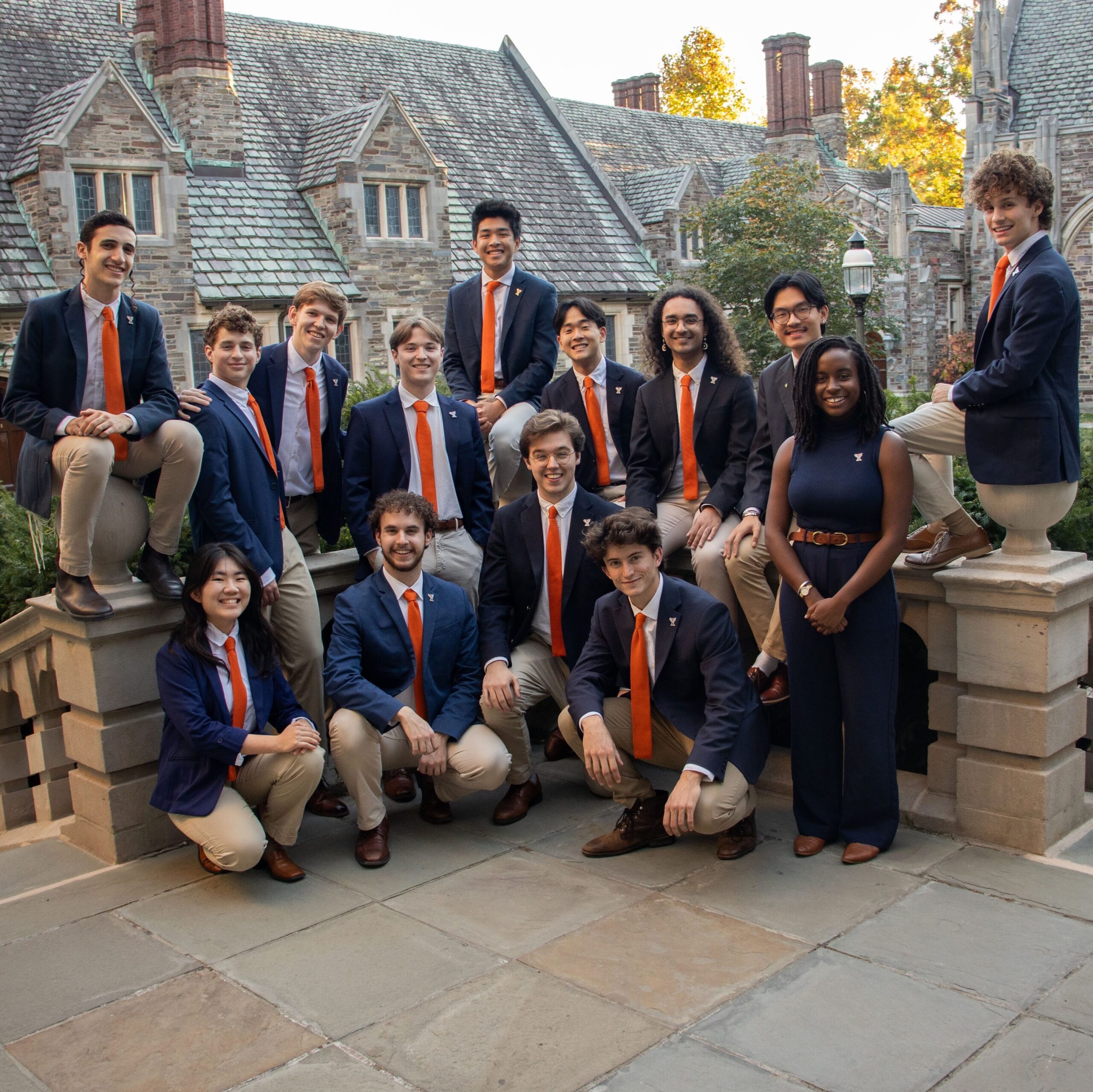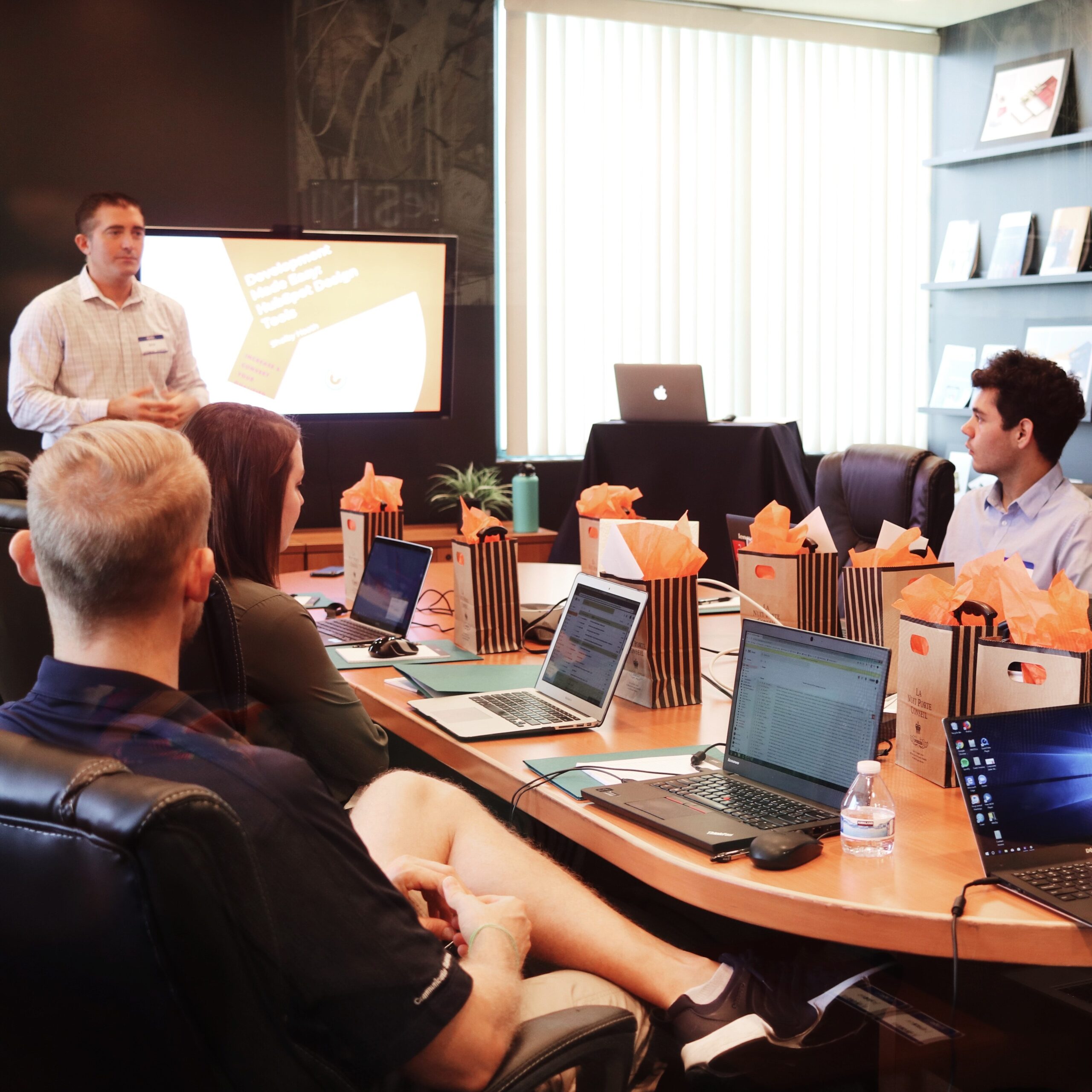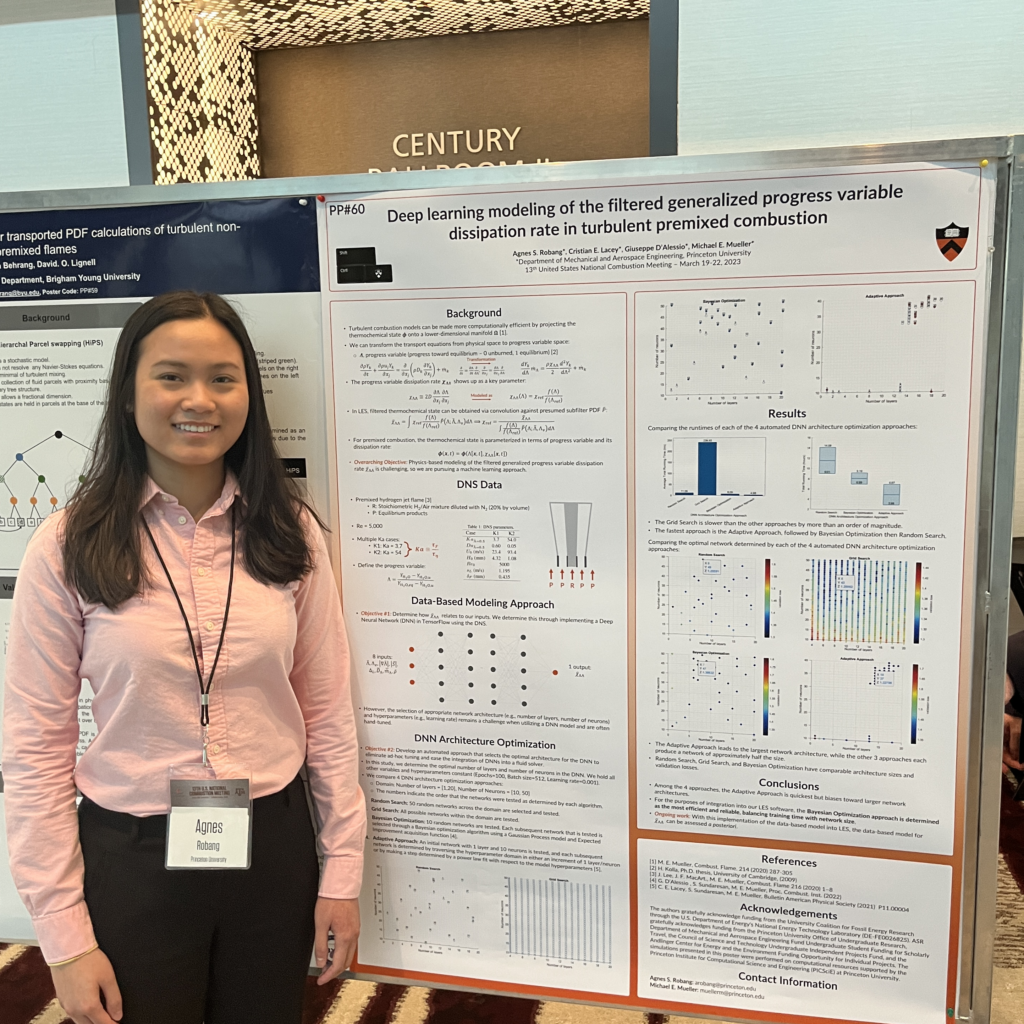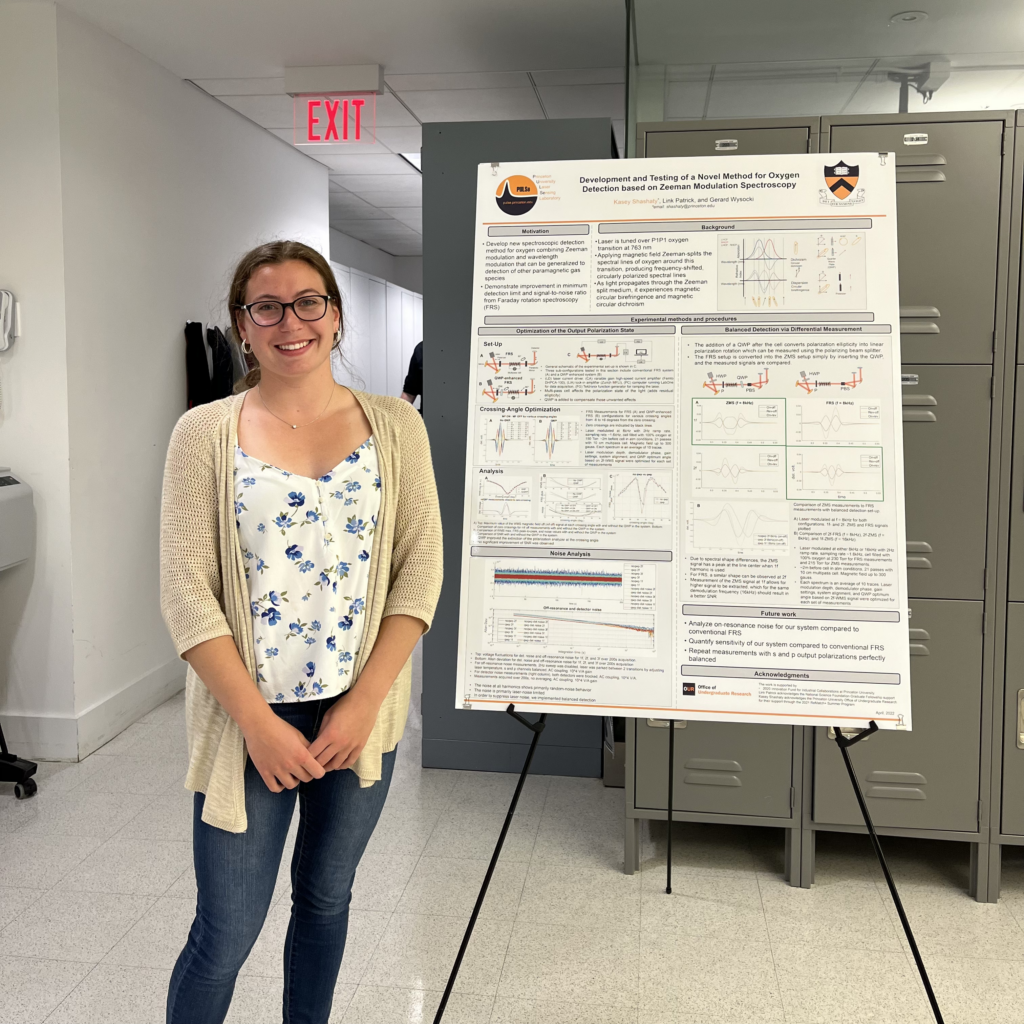Imagine standing in front of a big audience, heart racing, ready to blend your voice with others and hit the notes of an intricate a cappella arrangement. Every beat, every breath, is crucial. Every time I stand on stage or under an arch with my a cappella group, the Princeton Footnotes, I think of how similar singing and music feels to what I do in the lab. You might be thinking that singing in an a cappella group and doing research are worlds apart. However, these two passions have formed a bond in ways that I never believed possible. In fact, the creativity, collaboration, and discipline I have channeled in being a part of the Footnotes have made me a better researcher—and vice versa.
Continue reading Harmonizing Research and A Cappella: How Music Fuels My Scientific JourneyInto the Unknown
Reflection on my personal experience tackling a new research paradigm
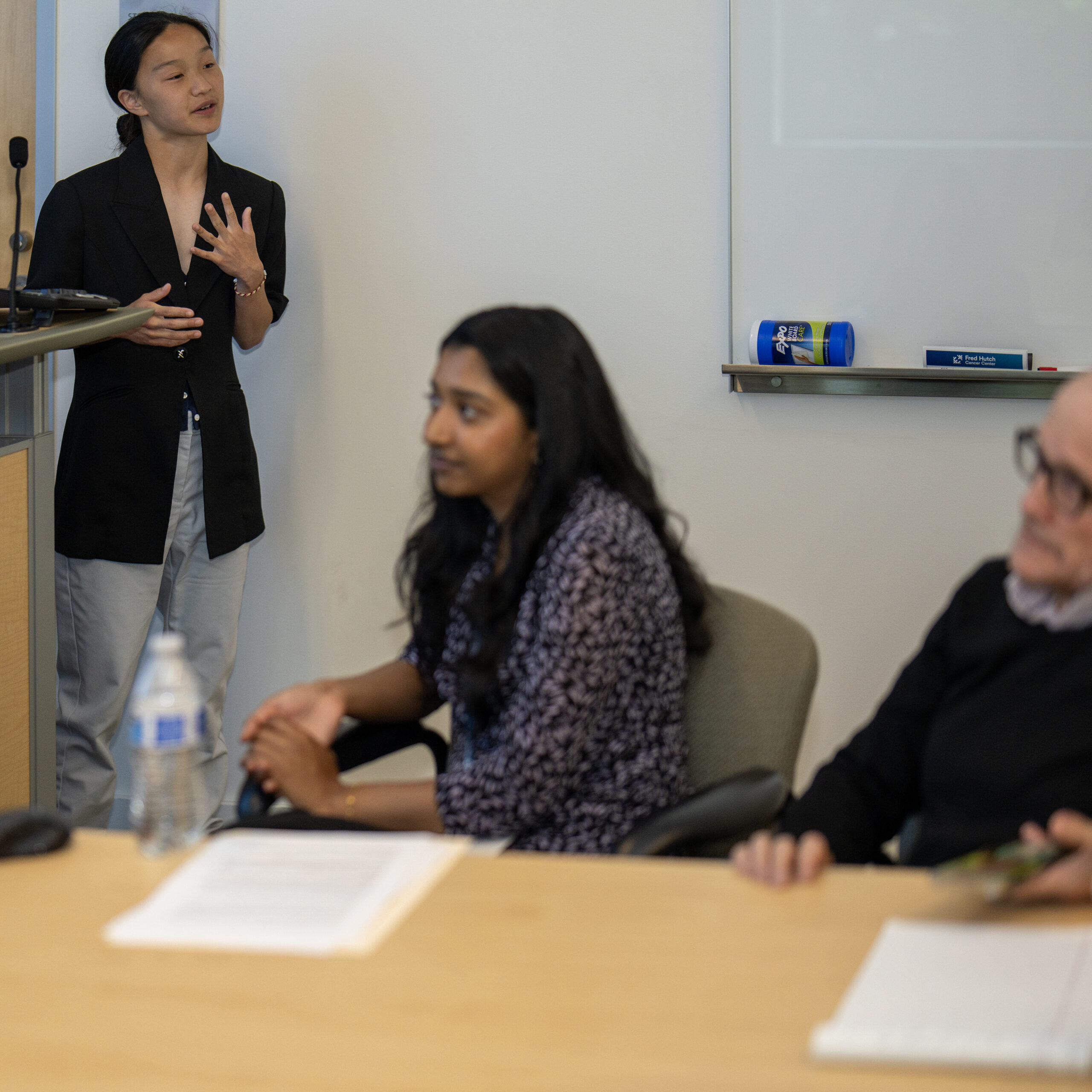
I’ve always believed in challenging myself to learn new methodologies and explore new fields in my research. Yet, there’s a fine balance between tackling a new challenge and feeling over your head. Reflecting on my past summer conducting a project in a completely new research paradigm, I wanted to take a moment to share my experience in the hopes of encouraging other students to be unafraid to undertake novel endeavors.
I had the life-changing opportunity to research the dose-response of the oral antiviral ensitrelvir for treating mild to moderate symptoms of SARS-CoV-2 with the Schiffer Lab starting this past June as an intern in the Fred Hutchinson Cancer Center Infectious Disease Sciences Internship Program. This project employed a very different application of my interests in healthcare and computer programming than I’d ever done before. Wide-eyed with amazement and curiosity, I delved into the fields of pharmacology, clinical trials, mathematical modeling, infectious diseases, and computational simulations. I remember learning about my project goals for the first time and thinking: “Wow, there are thousands of other students who would make a much better intern on this project”. This overwhelming imposter syndrome is something that I’ve often struggled with during my past research experiences when walking into new fields for the first time. But, thanks to the incredible mentorship of the Schiffer Lab and the tips that they shared with me, I overcame this fear and was able to grow into a more interdisciplinary and confident researcher this summer. I hope to pass on this same inspiration to other students here.
Continue reading Into the UnknownMentorship Matters: A Summer of Research and Growth
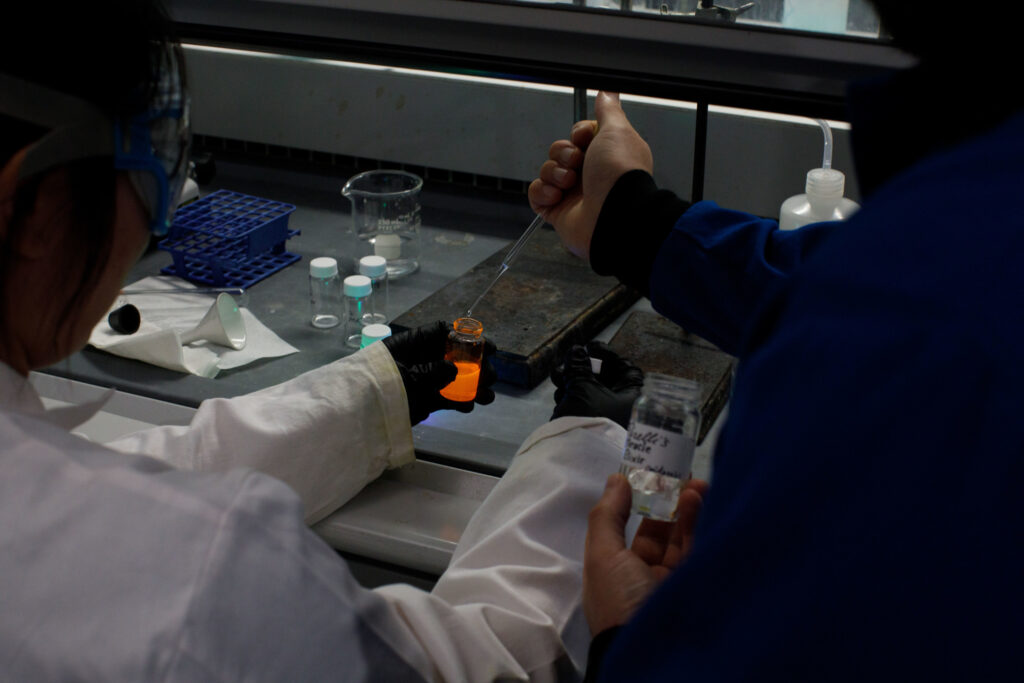
When I first walked into the lab this summer, I thought research was all about running experiments and gathering data. What I didn’t expect was how much the people around me—the mentorship and the shared triumphs and failures—would shape so much of my learning and how I view scientific research.
Starting a research position at a bioengineering lab over the summer was really intimidating for me, especially as an undergraduate. At the start, I felt like the most inexperienced person in a room full of graduate students, postdocs, and faculty who seem to have it all figured out. Although I’ve learned or at least seen a lot of the quantitative and qualitative components in my Chemical and Biological Engineering course, I did not have much hands-on experience and critical thinking that comes with actually doing experiments. That’s when I realized how big of a role a mentor plays.
Continue reading Mentorship Matters: A Summer of Research and GrowthA Guide to Citations
Whether writing a paper or providing a presentation, you will often find yourself relying on the completed work of others to synthesize information about a subject. An essential part of using these outside sources is to give their owners rightful credit in your references! Read some tips below on making citations easier.

A Guide to Presentation
Have a presentation for one of your courses and unsure where to start? Or maybe you need to present for a research symposium? During your undergraduate years, you will come across many times when you may have to give a presentation to present your research for coursework or perhaps for an individual research pursuit. Here are some tips to help you present easily and effectively!
Continue reading A Guide to PresentationShattering the Glass Ceiling: Becoming a Woman Undergraduate Researcher
A guide of first steps for women-identifying undergraduate students stepping into research
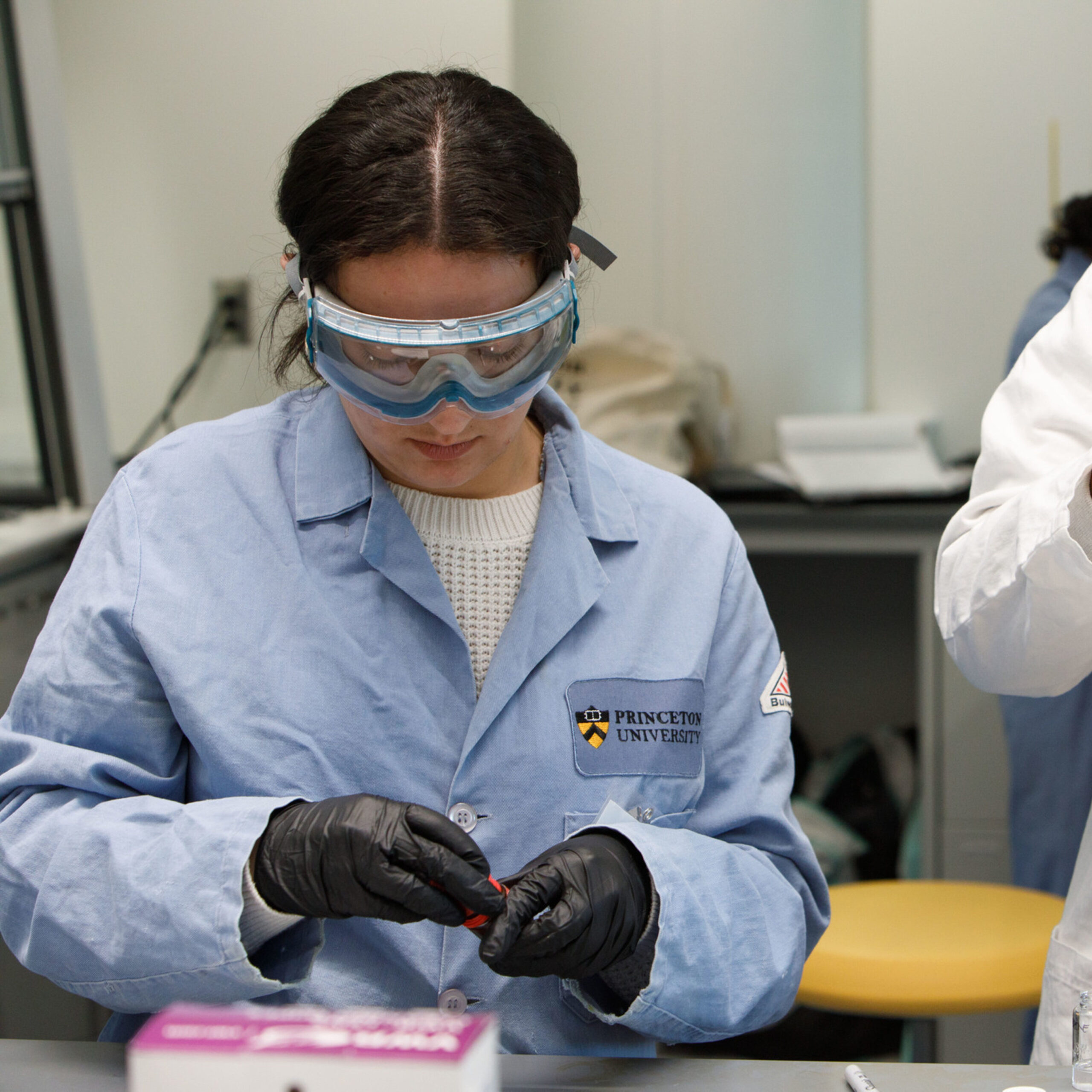
As we step into the new school year, woman-identifying undergraduate students across campus are looking to take their first steps into research. This process can be new, daunting, and sometimes, downright terrifying. It’s scary to step into a room where you are the first, the only, or both. That’s why it’s imperative to support women-identifying students in empowering research communities, advocating for their learning goals, and asserting themselves in new research settings. For allies, there are also important ideas shared by woman-identifying researchers about the best ways to support their success.
Continue reading Shattering the Glass Ceiling: Becoming a Woman Undergraduate ResearcherEffortless Perfection at Princeton: The “Perfect” Thesis is Really Hard Work
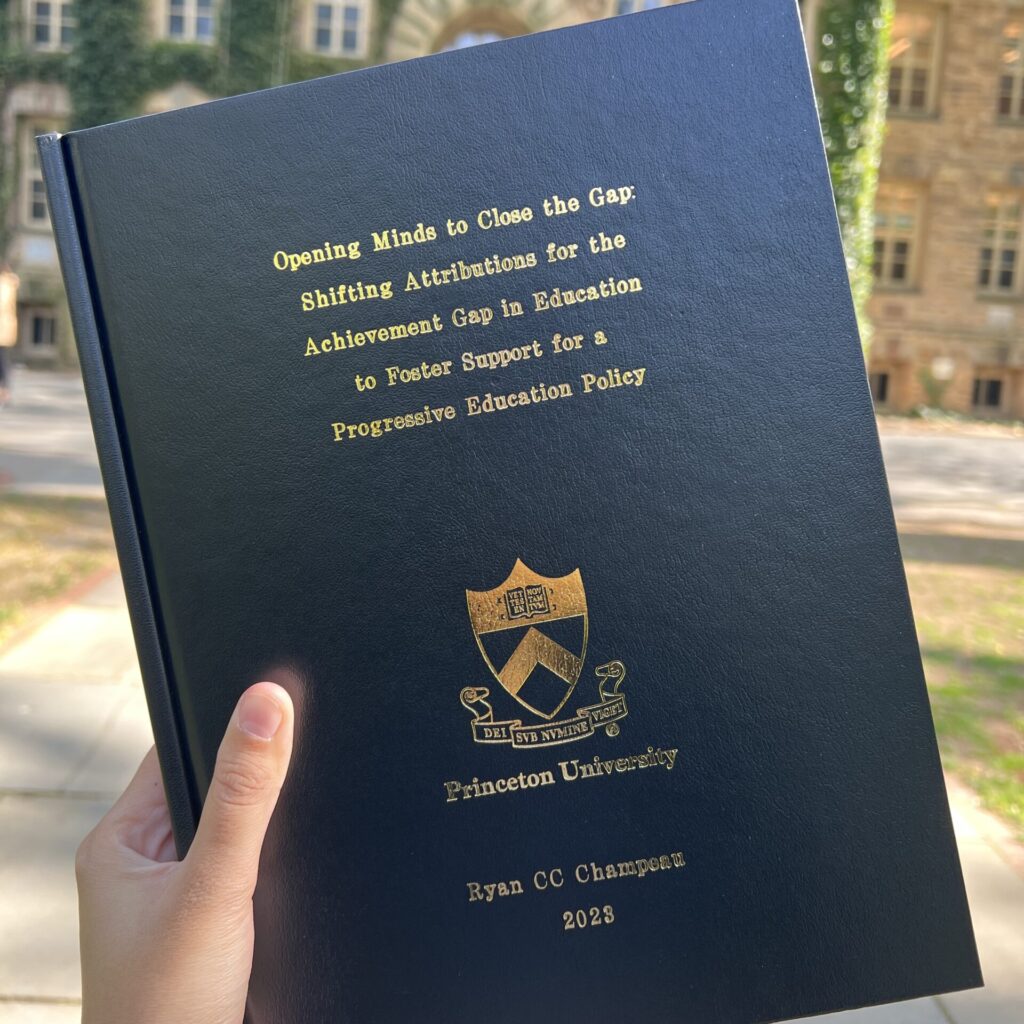
My final senior thesis!
I’ve always loved reading through senior thesis titles and thinking “Wow, that’s clever,” “That’s genius,” “I wonder how they came up with that.” The senior thesis, which many seniors refer to as a full-blown novel, is supposed to be a senior’s finest work and proudest possession. It looks impressive in its black book with gold font. It is 115 pages. It has fancy acknowledgments. As a first-year/sophomore, and even as a high schooler on tour, I was in awe at how seniors could create such a perfect paper. It isn’t until now that I know the answer: hard work.
Continue reading Effortless Perfection at Princeton: The “Perfect” Thesis is Really Hard WorkMy Experience at the 13th U.S. National Combustion Meeting
From March 19 to 22, 2023, I was at the 13th U.S. National Combustion Meeting presenting a research poster. My work was titled, “Deep Learning Modeling of the Filtered Generalized Progress Variable Dissipation Rate in Turbulent Premixed Combustion”. In my junior year, as I was planning what to work on for my thesis and what goals I hoped to attain, I determined that I wanted to go the extra mile in my research, enough to be able to go to an academic conference. With some hard work, the patient guidance of my adviser Prof. Michael Mueller, the support from my labmates at the Computational Turbulent Reacting Flow Lab, and the funding from several sources (MAE, CST, OUR, and ACEE), I was able to attend this conference! This was my first research conference, and I cannot overstate how valuable this experience has been to my growth as a researcher.
Continue reading My Experience at the 13th U.S. National Combustion MeetingSenior Thesising 101: Choosing your Topic

Senior thesis. Senior thesis. Senior thesis. By this time of year, you have most likely heard seniors in the middle of the night at Firestone or at Coffee Club study breaks, thinking about, stressing about, and working on their senior thesis. In my last post, I wrote about one of the first and most important steps of the senior thesis process, choosing the right adviser (see here). Now, I walk through what I believe to be another pivotal moment for the senior thesis process: choosing a topic. For SPIA majors and presumably for many other majors as well, it may seem difficult to narrow down your project to one specific topic when the major is so broad and diverse. Throughout my time at Princeton, I have taken classes in law, environmental policy, psychology, economics, ethics and more, and I enjoyed them all. But, I eventually had to choose one topic to write a full thesis on. So, without further ado, here are some steps on choosing the right topic for you.
Continue reading Senior Thesising 101: Choosing your TopicExperiences in the ReMatch+ Program: An Interview with Kasey Shashaty ’23 – Part 2
Last spring, I interviewed Kasey Shashaty. In this second part of my interview, we discuss specific challenges in her transition between virtual and in-person research and reflections on how this experience in the PULSe Lab has influenced her perspective on research and her plans for the future.
Kasey Shashaty got her jumpstart in research through the ReMatch+ program organized by the Office of Undergraduate Research. ReMatch+ is a summer mentorship program that pairs first-year and second-year students with a graduate student or postdoctoral fellow as they work on a summer research project. Read on to learn more about her research experience!
Continue reading Experiences in the ReMatch+ Program: An Interview with Kasey Shashaty ’23 – Part 2
